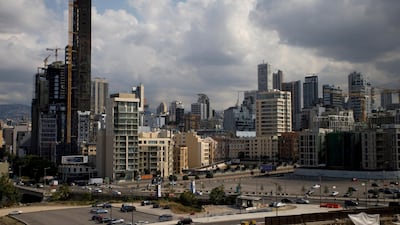Lebanon's 2018 budget will likely be approved by cabinet before mid-March, its finance minister said on Thursday, as the heavily indebted country seeks to agree its spending plans before an April 6 economic conference in Paris.
The minister, Ali Hassan Khalil, has previously said Lebanon will not be able to ask international donors for support unless it first passes the 2018 budget to show backers that Beirut is serious about economic reform.
"Most probably the budget will be approved by the council of ministers before the middle of the month, and it will include reforms. Work is focused on reducing the deficit and approving a set of incentives to get the economy moving," Mr Khalil told Reuters.
Lebanon hopes to win billions of dollars of international investment at the Paris conference. It is seeking funding for a 10-year, $16 billion capital investment programme aimed at lifting economic growth.
Parliament Speaker Nabih Berri had said the budget needed to be completed by March 5 before Lebanese politicians become preoccupied with preparations for a May 6 parliamentary election.
________________
Read more:
Lebanon's debt-to-GDP could balloon to 180% by 2023, IMF warns
Lebanon business conditions deteriorate at slower pace in January, survey shows
________________
Lebanon's public debt was estimated above 150 percent of GDP at the end of 2017, and is expected to rise rapidly with a budget deficit above 10 percent over the forecast horizon, the IMF said in February.
The IMF report said fiscal policy needed to be "immediately anchored in a consolidation plan that stabilises debt as a share of GDP and then places it on a clear downward path". It also said passing the 2018 budget and preparing for the Paris conference could provide opportunities to launch reforms.
The country has one of the world's highest debt-to-GDP ratios in the world and its economic growth is very weak, battered by domestic tensions and conflict in neighbouring Syria. Political deadlock had left it without a government budget from 2005 until it agreed one last year.

